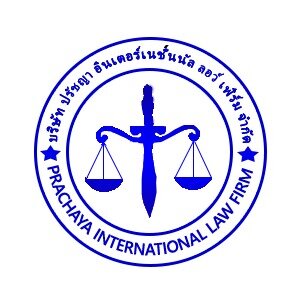Best Drunk Driving Lawyers in Huai Khwang
Share your needs with us, get contacted by law firms.
Free. Takes 2 min.
List of the best lawyers in Huai Khwang, Thailand
About Drunk Driving Law in Huai Khwang, Thailand
Drunk driving, known locally as driving under the influence (DUI), is a serious offense in Huai Khwang and throughout Thailand. Thai authorities have strict measures in place to address and prevent accidents caused by alcohol-impaired drivers. The legal blood alcohol concentration (BAC) limit is strictly enforced, and penalties for violations can be severe. Enforcement efforts are particularly high in urban districts like Huai Khwang, where traffic safety is a priority due to the dense population and bustling nightlife. Anyone caught driving under the influence faces significant legal consequences, including arrest, fines, license suspension, and possible imprisonment.
Why You May Need a Lawyer
Legal representation is crucial if you are accused of drunk driving in Huai Khwang. A skilled lawyer can help you understand your rights, navigate complex legal processes, and ensure fair treatment. Common situations where legal help is essential include:
- Challenging the results of a breathalyzer or other sobriety tests
- Negotiating reduced charges or penalties
- Defending against wrongful accusations
- Handling cases involving accidents or injuries
- Assisting non-Thai citizens with language and legal barriers
- Guiding you through court appearances and administrative hearings
- Protecting your driving privileges and minimizing long-term consequences
Local Laws Overview
Huai Khwang follows Thai national law concerning drunk driving, but local enforcement is particularly vigilant. Key legal aspects include:
- The legal BAC limit in Thailand is 0.05 percent for drivers over 20 years old
- For drivers under 20, new drivers, or drivers of certain types of vehicles (such as buses or trucks), the legal BAC limit is 0.02 percent
- Police may set up checkpoints, especially at night, to conduct alcohol testing
- Refusal to submit to testing can itself result in penalties similar to a DUI conviction
- Penalties include fines, imprisonment, suspension or revocation of driving licenses, and mandatory attendance at rehabilitation programs
- If an accident occurs resulting in injury or death, penalties are much higher, and imprisonment is highly likely
- Non-Thai residents, including tourists and expatriates, are subject to the same laws and face the potential for deportation in severe cases
Frequently Asked Questions
What is the legal blood alcohol concentration (BAC) limit in Huai Khwang?
For drivers over 20 years old, the legal BAC limit is 0.05 percent. For drivers under 20, or those driving public or commercial vehicles, the limit is 0.02 percent.
What happens if I am caught driving over the BAC limit?
You can be arrested on the spot, face fines up to 20,000 baht, possible imprisonment, suspension or revocation of your driver's license, and mandatory attendance at an alcohol education program.
Can I refuse a breathalyzer or sobriety test?
You can refuse, but doing so can result in penalties similar to being convicted of drunk driving, including fines and license suspension.
Will a DUI affect my ability to stay in Thailand?
For non-Thai nationals, serious offenses could result in visa complications or deportation, especially in cases involving accidents or repeat offenses.
Do I need a lawyer if it is my first offense?
While it is not mandatory, having a lawyer is recommended, especially if you want to challenge the evidence, minimize penalties, or have complications such as injuries related to the incident.
What should I do if I am stopped at a checkpoint?
Cooperate with police officers, provide your identification, and submit to requested alcohol tests. If you are arrested, exercise your right to contact a lawyer as soon as possible.
Can police arrest me without evidence of intoxication?
Police need a reasonable basis, such as suspicion from your driving behavior or a failed sobriety test, to make an arrest. However, refusing tests gives them grounds to proceed with charges.
What are the penalties for causing an accident while drunk driving?
If you cause property damage, injury, or death while drunk driving, penalties can include higher fines, several years of imprisonment, revocation of your license, and civil liability for damages.
How can a lawyer help if I am charged with DUI?
A lawyer can challenge the legality of the stop, question the accuracy of tests, negotiate reduced penalties, and ensure that your rights are protected throughout the process.
Where can I get help or advice about a drunk driving charge?
You can consult with a local attorney specializing in DUI cases, contact the Thai Bar Association, or seek information from local police stations in Huai Khwang.
Additional Resources
If you need further support or information regarding drunk driving charges in Huai Khwang, the following resources may be helpful:
- Huai Khwang Police Station - For local enforcement and reporting
- Bangkok Metropolitan Police Bureau
- Thai Bar Association - For legal aid and attorney referrals
- Department of Land Transport - For license matters and penalties
- Embassy or Consulate (for foreign nationals needing legal assistance or interpreter services)
Next Steps
If you are facing a drunk driving accusation in Huai Khwang:
- Stay calm and cooperate with law enforcement at the scene
- Request to contact a lawyer as soon as possible
- Gather any evidence or witness information that could support your case
- Document all interactions with law enforcement and keep copies of any paperwork you receive
- Schedule a consultation with a legal professional experienced in drunk driving cases in Thailand
- Follow your lawyer’s advice on attending court, handling administrative proceedings, and complying with legal requirements
Seeking prompt legal advice improves your chances of a favorable outcome and ensures your rights are protected throughout the legal process.
Lawzana helps you find the best lawyers and law firms in Huai Khwang through a curated and pre-screened list of qualified legal professionals. Our platform offers rankings and detailed profiles of attorneys and law firms, allowing you to compare based on practice areas, including Drunk Driving, experience, and client feedback.
Each profile includes a description of the firm's areas of practice, client reviews, team members and partners, year of establishment, spoken languages, office locations, contact information, social media presence, and any published articles or resources. Most firms on our platform speak English and are experienced in both local and international legal matters.
Get a quote from top-rated law firms in Huai Khwang, Thailand — quickly, securely, and without unnecessary hassle.
Disclaimer:
The information provided on this page is for general informational purposes only and does not constitute legal advice. While we strive to ensure the accuracy and relevance of the content, legal information may change over time, and interpretations of the law can vary. You should always consult with a qualified legal professional for advice specific to your situation.
We disclaim all liability for actions taken or not taken based on the content of this page. If you believe any information is incorrect or outdated, please contact us, and we will review and update it where appropriate.









